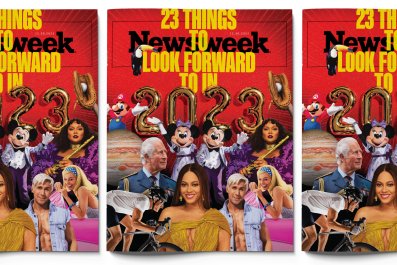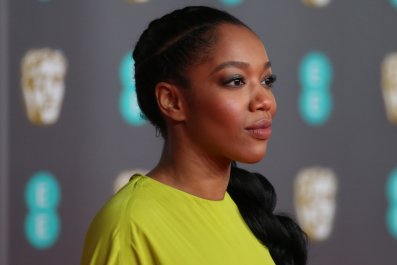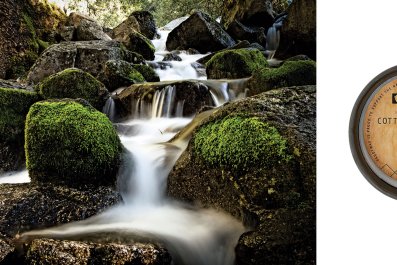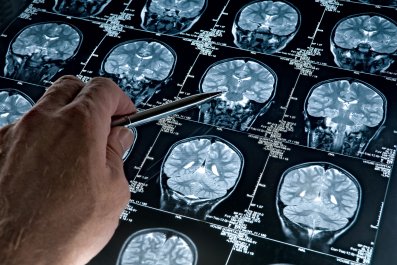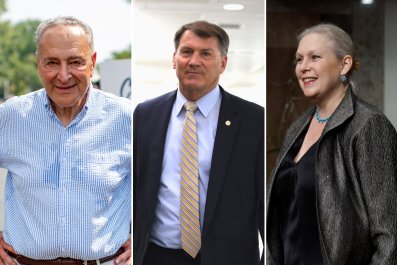This year is the 30th anniversary of the pilot of the Ricki Lake show. Looking back, it was unbelievably presumptuous for me to think I could host a show at the age of 24. I didn't have a sense of who I was or what I believed in at that time.
I had a very sheltered upbringing and grew up in a small town outside of New York City, where I went to public school until 11th grade. My dad was a pharmacist, my mom was a homemaker and I had one sister. Very generic. I wasn't around openly gay people and my town wasn't that diverse. I was very young and innocent in a lot of ways. But meeting [director] John Waters, and working on Hairspray (1988) at the age of 20 with the most outrageous people of all walks of life, blew my world wide open.
I think playing Tracy Turnblad in that movie and being the fat girl that overcomes adversity, gets the guy and wins the contest, made me more relatable and "girl next door." I'm someone who struggled with my weight openly, and came from out of nowhere and became a star overnight. I think my story was appealing to a lot of people; I was very non-threatening, which made me palatable to an audience as a talk-show host.
Hosting the Ricki Lake show
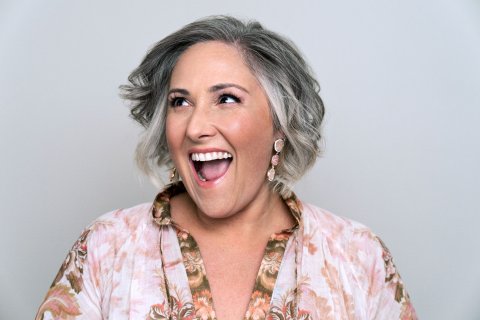
I was 100 percent myself while hosting Ricki Lake. One of the things I'm most proud of is that I refused to wear an IFB—a device you wear in your ear, so the control room has access to you and can tell you, "Don't forget to say this." I didn't want someone telling me what to say, and I didn't want to be distracted, so I kind of produced myself on the fly, along with my co-executive producer, Gail Steinberg, who would be on the sidelines.
I don't think anyone can be taught to host a show like mine. You either get it or you don't—and it came very easily to me. I have a natural curiosity about people, I'm super forthcoming about my own life and what I think, and I was able to take cues, tell a story and pull out the conflict. All these little things go hand in hand in doing a show that works.
The most memorable episode was the one with Westboro Baptist Church pastor Fred Phelps. He was on the show, talking about his homophobic beliefs and why he picketed the funerals of people who died with AIDS. I was shaking in my heels because of what he was saying. I couldn't compete with the proverbs from the Bible, that was not something I knew anything about. I just knew he was disrespecting my gay friends—and I'm an ally, I always have been, starting with my time with drag queen actor Divine and John Waters working on Hairspray. The only thing I could do at that moment was to remove him, so I kicked him off the show in the commercial break.
But every episode—and I did over 2,000 hours of television—would surprise me in some way. There was always something that someone would say that would get me, or make me laugh or make me think. It was such a privilege to be in that position.
What we did that I think was groundbreaking, which I didn't realize at the time, was give the marginalized and the unrepresented a voice, and a way to be seen and heard. Maybe I set the tone, because I treated everyone the way I would want to be treated—particularly with gay stories, we didn't differentiate and say, "OK, we have a gay couple coming up." We just presented them as the next couple, talking about an issue. It wasn't a "gotcha" kind of show. It was feel-good, and very much like a party atmosphere.
I'm really proud of the fact that we were able to offer so many people a way to feel like they were being represented. There are countless stories that I'm now hearing while I'm doing my podcast, where I review old episodes of the show, of people being impacted in a very positive way. They were able to come out to their families, or they got the courage to face whatever they were facing, because they saw it on Ricki Lake. That feels really good.
Leaving the Ricki Lake show
I think I took the show for granted back then in a lot of ways. I never gave it the reverence that it deserved at the time. I was just in the grind. It was 200 shows a year and, for me, the way I hosted the show got to be very formulaic.
And then 9/11 happened. I watched it first-hand from my apartment in the West Village. I was on the roof of my building with my 4-year-old and my husband at the time, and my 2-month-old was in my apartment with our nanny.
I stood there and watched one of the towers fall. I was about a mile-and-a-half from it, and I remember thinking, "OK, I'm going to die, and my legacy's going to be this show." And I know it sounds so ridiculous, but I was like, "If I live through this, I want to really put my stamp on something. I want to use my name and persona for something I really, really care about, or where I can really make a difference."
The trauma of witnessing and living through that day on September 11 changed the trajectory of my career and my life. My marriage ended, I left New York for California, and it changed everything for me.
I finished my contract on Ricki Lake and stayed a couple more years but I really soul-searched about where else I felt I could make a difference. I was so profoundly impacted by my birth experiences—one in the hospital and one at home—that I wanted to explore that area. So I made the documentary, The Business of Being Born. It was my most personal project; it was all my own money, my home water birth is in the film, and it was what I cared about.
I wasn't sad when Ricki Lake ended. I was going through a divorce at the time, I had some personal stuff I had to deal with, so it ended at the right time for me.
But I learned so much about relationships, about myself, during my time on the show. I literally grew up in that time. In my first month on air, at 24, I met my first husband and got married that year; in my final season, at 35, I was getting divorced and I had two kids.
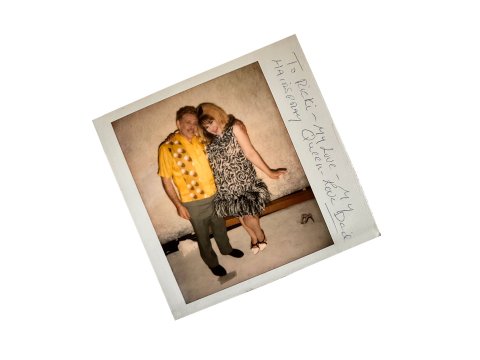
Why you couldn't make Ricki Lake now
TV has changed in the past 30 years because there are so many choices now. It's like a chore trying to figure out what to watch. Part of me misses the simplicity of having a few channels, and not having a smartphone in your hand, being distracted by TikTok. Now, we're all so distracted and disconnected.
I don't watch a lot of talk shows these days; I'm not a big fan. I watch more political stuff or reality television—the Housewives, Love Island and an outrageous show in the UK, Naked Attraction, where they show their naked parts and pick a partner. It's way crazier than my old talk show, that's for sure.
Andy Cohen is a good friend of mine—he created the Real Housewives franchise on Bravo. He says that those shows are somewhat derived from the Ricki Lake show. It's real people talking about real relationships. He absolutely gives some credit to shows like mine.
I think our show was a way of bringing people together. I miss that, but I don't miss hosting a show.
I've said before that Ricki Lake couldn't exist today. My gut feeling is that, at least in the United States, we're just too divisive. We're all so careful about our choice of words and being "woke." I don't think I could be as free as I was back then. I treated people with respect but I basically had free reign to say whatever I thought—and I did. But now, I'm a little more cautious.
I'm really careful on social media. I'm very liberal and I'm very outspoken about that, but I feel I have to stick to my wheelhouse, the things I'm passionate and comfortable talking about: maternal health, women's reproductive health, being pro-choice. I'm not someone that's going to grandstand about every issue because I don't feel like I'm educated enough about everything. Unless I feel very strongly and feel like I know what I'm talking about, I'm cautious.
Lessons I have learned over the years
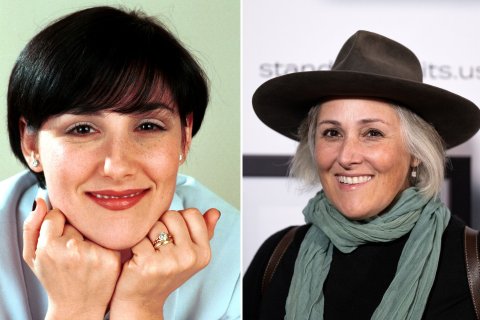
If I could go back and talk to my 24-year-old self, I would probably say: Don't beat yourself up about your looks or your weight. I spent a lot of time, especially when I dealt with hair loss, not liking what I saw when I looked in the mirror. I think that was a big waste of time.
I reached a turning point in how I viewed myself very recently. I think it was when I shaved my head, two-and-a-half years ago, out of desperation. My hair was in really bad shape, due to androgenetic alopecia. I was wearing an extensions piece on my head and then one day I just took it off and shaved my head. It wasn't on a whim; it was something that I needed to do to be free of the secret that I felt I was carrying. Doing that and getting to the other side of that, looking in the mirror and seeing me with a shaved head, felt like a rite of passage for me to accept and love myself.
I lost my ex-husband, Christian, in 2017 to suicide and bipolar disorder. I was annihilated from that loss. But after losing him and working on healing through that loss, I started to love myself the way he loved me. So it's been a journey. I'm a work in progress, but I have come to a place where I really appreciate my body, my brain and my life.
When I was 24, I had no idea I was going to get out of debt, raise children and put them in private schools. I never thought I'd be able to have this lifestyle. Now, I'm 54 and I just got married for the third and last time. We are the happiest people in their 50s you'll ever see—we literally wake up singing. My husband is one of the best things that has ever happened to me, and I deserve him.
I think I've come to a place where I've realized I'm a good person, I've done some good work in my life, I'm really proud of my children who I've raised mostly as a single mom, and now I get to live this life with my beautiful partner for the rest of our days.
My life now is the bomb. We live in Malibu, and our house looks out over the ocean. I feel so blessed and I appreciate every opportunity that I've had. I cannot believe how good things are at this time in my life.
Ricki Lake recently released the podcast, Raised by Ricki, which is available to stream now.
All views expressed in this article are the author's own.
As told to Newsweek's My Turn deputy editor, Katie Russell.



